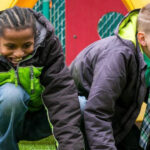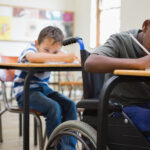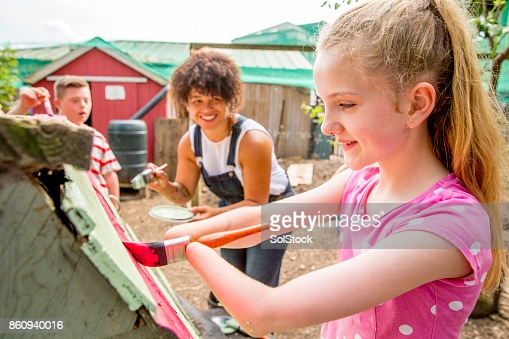
Our Vision
All people, including children and adults living with disabilities, and their families, fully participate in society and live healthy, safe, self-determined and productive lives.
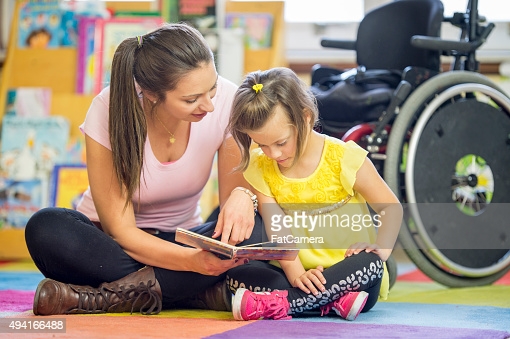
Our Mission
UCCEDD is a leader in working with and on behalf of children and adults with disabilities and their families so they can lead the lives they want. UCCEDD accomplishes its mission through education, training, research, impacting on policy, and sharing information.
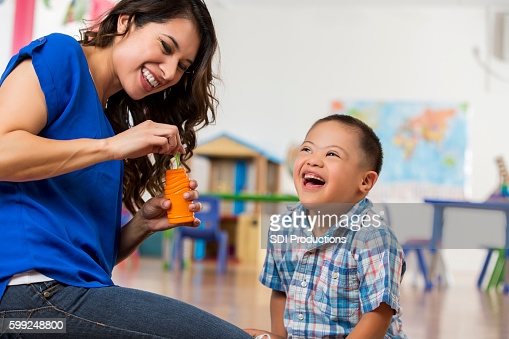
UCCEDD Values
The UCCEDD values:
- Following the lead of individuals with disabilities and their caregivers
- Civic engagement of all (for example, voting, becoming an official candidate for a board, speaking up on local issues)
- Preparing future professionals who will provide high quality support and services to individuals with intellectual and developmental disabilities and their families
- Disability Advocacy & Awareness
- Plain and clear language
- Universal Design/a world that is accessible to all
- The power of teamwork
- Respect for all
- Diversity/individuals from different backgrounds and walks of life
- Inclusion
- Belonging
- A responsible use of resources (for example, money, staff members)
- Setting and meeting goals
- Feedback on how we are doing

Our Mission
UCCEDD is a leader in working with and on behalf of children and adults with disabilities and their families so they can lead the lives they want. UCCEDD accomplishes its mission through education, training, research, impacting on policy, and sharing information.
Our Vision
All people, including children and adults living with disabilities, and their families, fully participate in society and live healthy, safe, self-determined and productive lives.
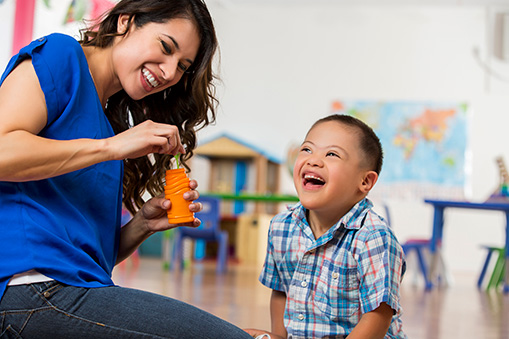
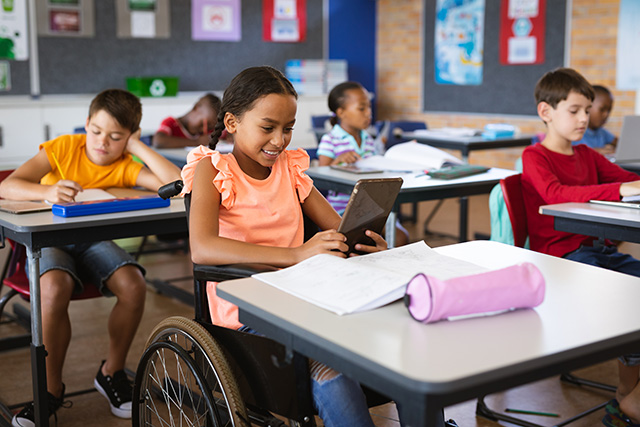
UCCEDD Values
The UCCEDD values:
- Following the lead of individuals with disabilities and their caregivers
- Civic engagement of all (for example, voting, becoming an official candidate for a board, speaking up on local issues)
- Preparing future professionals who will provide high quality support and services to individuals with intellectual and developmental disabilities and their families
- Disability Advocacy & Awareness
- Plain and clear language
- Universal Design/a world that is accessible to all
- The power of teamwork
- Respect for all
- Diversity/individuals from different backgrounds and walks of life
- Inclusion
- Belonging
- A responsible use of resources (for example, money, staff members)
- Setting and meeting goals
- Feedback on how we are doing
Our Inclusion Commitment
(plain language)
The UCCEDD is dedicated to inclusion and respect for all. Our work is strengthened by diversity. We support appreciation and respect within communities through our policies, resources, and actions
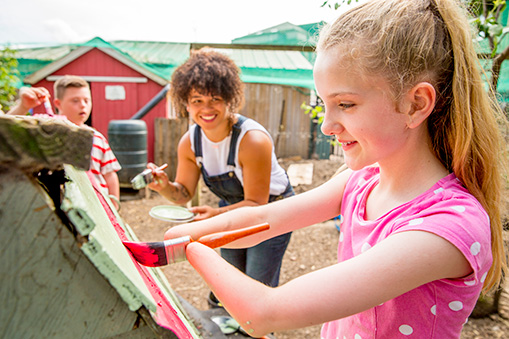
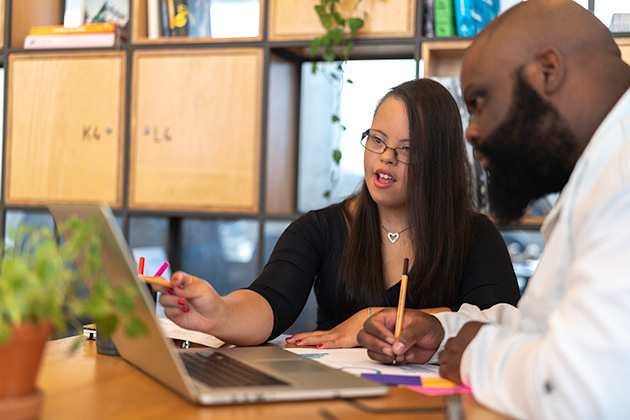
Our Inclusion Commitment
The UCCEDD is committed to inclusion and respect for all people with disabilities, family members, caregivers, community members, trainees, staff, and faculty in and beyond our programs. Our work is strengthened by multiple perspectives, especially of those who were historically excluded, that derive from differences in race, ethnicity, national origin, socioeconomic status, sexual orientation, gender identity, religion, disability, family status, and age. We aim to build appreciation and respect among diverse communities through our policies, resources, and actions
Our Funding
UCEDDs are federally funded by the Administration on Disabilities (AOD), Administration for Community Living (ACL), and U.S. Health and Human Services (HHS).
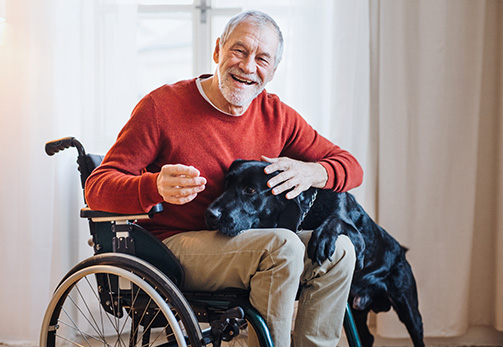
Our Priorities
1. Early Childhood
- Provide training and technical assistance to early care providers to ensure they have the knowledge/skills to fully include young children with disabilities in care
- Provide training, technical assistance, and information for family caregivers and professionals to identify developmental delays/risks early in life (0-5 years) and refer to early intervention
- Improve care coordination for families of children and youth with special healthcare needs and disabilities.
2. Education
- Educate and empower family members and youth to be integral members of the Individualized Education Plan (IEP) team and increase their knowledge and skills to prepare them for a successful transition from school to adult life, college or employment
- Work towards improved collaboration of schools with healthcare, mental health, adult services, employers, and colleges.
3. Empowerment and Self-Advocacy
- Facilitate skills building in children, youth, and adults with developmental disabilities (DD) so they know their rights, can advocate for their needs, be leaders, make their own decisions, and create a good life in the community for themselves
4. Family Support
- Increase the skills of family members to successfully navigate the DD and other service systems
- Increase knowledge about services, supports, and resources that are available to families and caregivers
- Improve advocacy skills of family members for their loved ones with DD and themselves
- Connect family members with peers/coaches for support
- Support family members in supporting their loved ones with DD in making their own decisions and living the lives they want
5. Health Equity
- Train healthcare providers to provide equitable, appropriate, and respectful care to people with DD
- Increase awareness about ethical decision-making in healthcare/mental health settings for providers
- Work towards an improved process of healthcare transition from pediatric to adult care
- Educate professionals, family members, and people with disabilities on better access (physical, attitudinal, etc.) to all healthcare services
- Improve preparations and planning for health crises, emergencies, and disasters so they are fully inclusive of people with disabilities
6. Community Living
- Improve home and community-based services that allow for a quality life in the community
- Increase the number of people in the direct care workforce and increase training
- Increase and improve accessible, inclusive community-based activities in all areas of life (recreation, art, spiritual, sports, etc.)
- Support the development of innovative models for accessible, affordable housing and transportation options
- Increase the connection of people with DD with like-minded friends to combat loneliness/isolation
- Continue to work with partners to improve employment opportunities for people with disabilities
7. Underserved and Diverse Communities
- Develop partnerships and build trust with underserved and diverse communities
- Increase outreach and collaboration with people with DD, family members, and professionals from underserved communities, such as low-income, rural, African American, Hispanic, Asian, immigrant, refugee, etc.
- Include and increase the number of individuals with disabilities, family members, and professionals from underserved populations in all aspects of our work and as members of our Community Advisory Committee (CAC)
- Increase UCCEDD/LEND faculty and staff professional development opportunities for cultural humility and culturally and linguistically responsive work.
